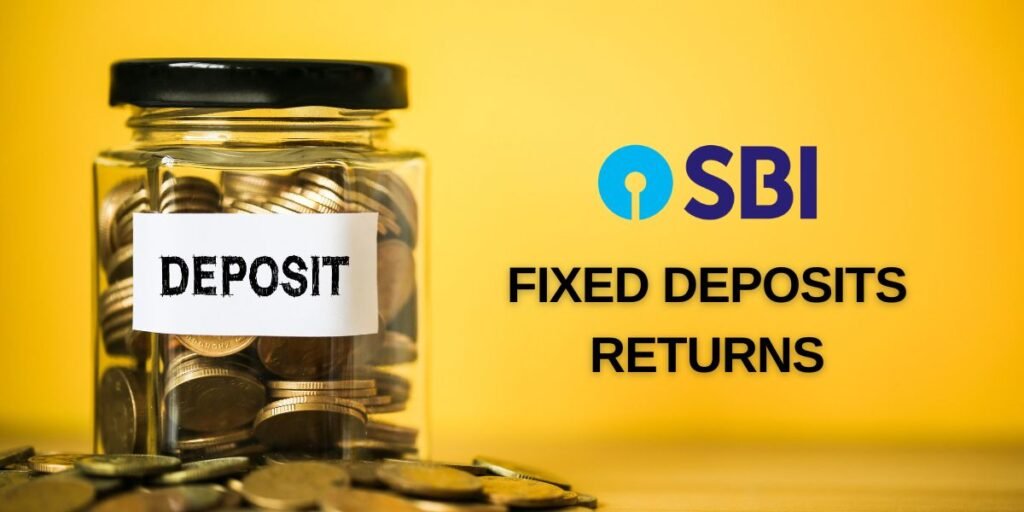Investing your hard-earned money is a crucial decision, and finding the right avenue that combines safety and attractive returns is paramount. One such option that has stood the test of time is the State Bank of India (SBI) Fixed Deposits. In this article, we will delve into the nuances of SBI Fixed Deposits, helping you understand why it’s not just an investment but a smart financial decision. It offers Fd rates around 3.00% to 6.50%.to general citizens and 4.00%and 7.50% For senior citizens
Understanding SBI Fixed Deposits
Features and Benefits
SBI Fixed Deposits offer a range of features that make them a preferred choice among investors. With a guaranteed return on investment, the safety of your principal amount is a significant advantage. Additionally, the flexibility to choose the tenure and the option to receive interest payouts at regular intervals provide investors with a customizable experience.
Interest Rates and Tenures
Before diving into any investment, understanding the interest rates and tenures is crucial. SBI offers competitive interest rates across various tenures, allowing investors to align their fixed deposits with their financial goals. Longer tenures often come with higher interest rates, providing an incentive for those looking for sustained growth. Here you can check the belowtable for interest rates:
| TENURE | REGULAR RATES | SENIOR CITIZEN |
| 7 days to 45 days | 3.50% | 4.00% |
| 46 days to 179 days | 4.75% | 5.25% |
| 180 days to 210 days | 5.75% | 6.25% |
| 211 days to less than 1 year | 6.00% | 6.50% |
| 1 year to less than 2 year | 6.80% | 7.30% |
| 2 years to less than 3 years | 7.00% | 7.50% |
| 3 years to less than 5 years | 6.75% | 7.25% |
| 5 years and up to 10 years | 6.50% | 7.50% |
| 400 days (Amrit Kalash) | 7.10% | 7.60% |
Calculating Returns
How Interest Is Calculated
The calculation of returns on SBI Fixed Deposits is straightforward. The interest is compounded quarterly, ensuring that your money grows steadily over time. Knowing how your returns accumulate helps in making informed decisions about the tenure and the deposit amount.
Factors Influencing Returns
Several factors can influence the returns on your fixed deposit. Economic conditions, changes in RBI policy rates, and inflation rates play a significant role. Understanding these factors enables investors to strategize and maximize their returns in the dynamic financial landscape.
Comparing with Other Investment Options
Risk and Return Analysis
Comparing SBI Fixed Deposits with other investment options is a wise approach. While the stock market may offer higher returns, it comes with inherent risks. Fixed deposits, on the other hand, provide a stable and secure investment avenue. Analyzing the risk and return trade-off helps investors make an informed decision based on their risk tolerance and financial goals.
Why SBI Fixed Deposits Are a Smart Choice
SBI’s reputation as a trustworthy financial institution adds to the appeal of its fixed deposits. The combination of security, flexibility, and competitive interest rates makes SBI Fixed Deposits a smart choice for both novice and seasoned investors.
Tips for Maximizing Returns
Choosing the Right Tenure
The tenure of your fixed deposit has a direct impact on the returns. While longer tenures offer higher interest rates, they may lack liquidity. Balancing your financial goals with the appropriate tenure is essential for maximizing returns without compromising on flexibility.
Impact of Interest Rate Changes
Interest rates are subject to change based on market conditions. Keeping an eye on these changes and adjusting your investment strategy accordingly can help you optimize returns. SBI provides updates on interest rate changes, empowering investors to make timely decisions.
Tax Implications
Tax-Saving Benefits
Understanding the tax implications of your investments is crucial. SBI Fixed Deposits offer tax-saving benefits under Section 80C of the Income Tax Act. Investors can enjoy deductions up to a certain limit, making it a tax-efficient investment option.
Understanding TDS
Tax Deducted at Source (TDS) is applicable to the interest earned on fixed deposits. Knowing the TDS rates and exemptions ensures that investors can plan their tax liabilities effectively. SBI provides transparent information on TDS, enabling investors to stay informed.
FAQ’s
- How often is the interest compounded?
The interest on SBI Fixed Deposits is compounded quarterly. - Can I withdraw my fixed deposit before maturity?
Yes, premature withdrawal is allowed, but it comes with a penalty. - What happens if the interest rates change during my tenure?
SBI provides updates on interest rate changes, and your returns may be affected accordingly. - Is there a minimum deposit requirement for SBI Fixed Deposits?
Yes, there is a minimum deposit requirement, varying based on the type of fixed deposit. - Are there any special rates for senior citizens?
Yes, SBI offers special interest rates for senior citizens, providing them with additional benefits.
